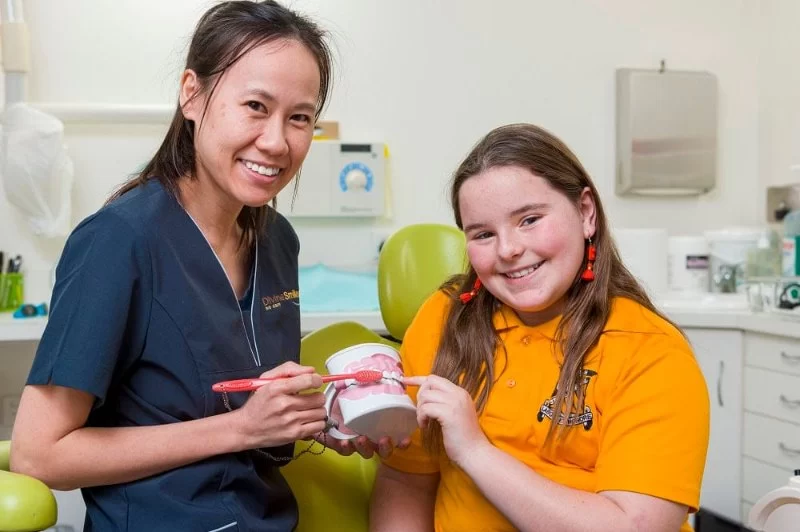
Understanding What Haitians Know About Oral Hygiene
Oral hygiene in Haiti is a fascinating intersection of culture, accessibility, and community wisdom. Many Haitians grow up with natural home remedies for cleaning their teeth and gums, passed down through generations. While modern dental care has expanded in urban areas like Port-au-Prince, much of the population still relies on traditional knowledge and affordable solutions to maintain their smiles. Exploring what Haitians know about oral hygiene reveals how deeply community habits and resourcefulness shape their dental health today.
The Cultural Roots of Oral Care in Haiti
1. Traditional cleaning methods and natural resources
For centuries, Haitians have used locally available resources for oral hygiene. Chewing sticks from the neem tree or guava branches were common tools for cleaning teeth before toothbrushes became widespread. These natural brushes, known locally as “batons,” contain antibacterial properties that help prevent plaque buildup and gum disease. Even today, older generations continue to trust these methods for their simplicity and effectiveness.
2. Influence of family and community habits
In many Haitian households, oral care habits begin at home rather than in dental clinics. Parents often teach children to rinse with salt water or herbal infusions after meals to keep their mouths fresh and free from bacteria. Communities without easy access to fluoride toothpaste have developed creative substitutes—such as baking soda or crushed charcoal—to maintain oral cleanliness. This collective knowledge reflects resilience and adaptability in the face of limited dental resources.
Access to Modern Dental Care
1. The urban-rural divide
In cities like Port-au-Prince or Cap-Haïtien, more Haitians are gaining access to dental clinics and professional oral care. Modern toothpaste brands and mouthwashes are now available in supermarkets and pharmacies, promoting fluoride protection and cavity prevention. However, rural areas still struggle with limited access to dental professionals. Many Haitians in these regions depend on local remedies or volunteer dental missions to receive basic treatments.
2. Education as a tool for change
Nonprofit organizations and schools in Haiti have begun promoting dental education through outreach programs. These initiatives teach children how brushing twice a day with fluoride toothpaste can prevent decay and gum disease. Campaigns also emphasize avoiding sugary snacks and soft drinks, which are growing in popularity among younger Haitians. This blend of cultural tradition and modern science is helping to reshape the nation’s approach to oral health.
The Role of Diet and Lifestyle
1. The impact of natural diets
Haitian cuisine—rich in fruits, vegetables, and low-processed foods—naturally supports good oral health. Foods like papaya, sugarcane, and coconut water help clean the mouth and provide minerals that strengthen enamel. Traditional meals often involve fresh ingredients, meaning less exposure to refined sugars compared to many Western diets. However, as processed foods become more available, dentists in Haiti are seeing a rise in cavities and gum issues.
2. Oral hygiene in daily routines
Even with limited resources, Haitians often maintain consistent daily oral care habits. Brushing in the morning is almost universal, and many people rinse with herbal or saline solutions throughout the day. While flossing is less common due to affordability, innovative alternatives—such as using thin plant fibers—reflect how deeply oral hygiene is valued across Haitian communities.
Challenges in Dental Health Awareness
1. Limited dental facilities
Despite growing awareness, Haiti faces a shortage of licensed dentists, especially in remote areas. The World Health Organization estimates fewer than one dentist per 50,000 residents in some regions. This scarcity leads to delays in treatment for conditions like cavities, gum infections, and tooth decay, which often progress before professional help is available.
2. Cultural perceptions of dental pain
In Haitian culture, mild tooth pain is often treated as a normal part of aging rather than an urgent health issue. Home remedies such as clove oil or salt compresses are used first, and many people seek professional care only when pain becomes unbearable. This cultural norm highlights the need for continued education about preventive care rather than reactive treatment.
Stories of Change: Community Efforts Making a Difference
One notable example is a volunteer dental project in Jacmel, where local teachers began including oral hygiene lessons in their curriculum. Children were provided toothbrushes and taught proper brushing techniques. Within a year, teachers noticed fewer complaints about toothaches and improved attendance—showing how education can directly impact quality of life.
Similarly, a Haitian-American dentist named Dr. Jean-Pierre launched a campaign bringing fluoride mouthwash and dental supplies to underprivileged schools. His efforts combined modern dentistry with local culture, encouraging children to care for their teeth as a matter of pride and health. These success stories illustrate the growing awareness and modernization of oral hygiene knowledge in Haiti.
What Americans Can Learn from Haitian Oral Hygiene Practices
1. Simplicity and consistency
Haitians demonstrate that maintaining oral health doesn’t always require expensive products—consistency and discipline matter more. Using simple tools like natural brushes or rinses can be surprisingly effective when used correctly and regularly.
2. Community-driven health education
The strong sense of community in Haitian culture shows how oral health education can thrive outside traditional dental offices. When oral hygiene becomes a shared value, it creates a ripple effect that benefits entire neighborhoods. Schools, churches, and local groups in the U.S. can draw inspiration from this model to improve awareness and preventive care.
Promoting Oral Health with Family Dentistry Online
1. Expert guidance for better oral care
Family Dentistry Online offers valuable information and professional insights for those looking to improve their dental health. Whether learning about what Haitians know about oral hygiene or exploring modern care options, the platform connects users with trusted resources to maintain healthy teeth and gums.
2. Culturally aware dental recommendations
By understanding how different cultures approach oral hygiene, Family Dentistry Online provides personalized recommendations that respect individual habits and preferences. Their expert content helps bridge the gap between traditional knowledge and modern dental science, ensuring everyone—from Haiti to the U.S.—has access to reliable care strategies.
3. Encouraging lasting oral health habits
Oral health isn’t just about brushing—it’s about awareness, education, and cultural appreciation. Family Dentistry Online encourages readers to apply the same commitment and community spirit Haitians show in maintaining their smiles, proving that healthy habits can start anywhere and last a lifetime.







 Pediatric Dental Specialists of Montrose4.0 (169 review)
Pediatric Dental Specialists of Montrose4.0 (169 review) Schnierow Dental Care3.0 (177 review)
Schnierow Dental Care3.0 (177 review) Dentist Implants Bucks County5.0 (7 review)
Dentist Implants Bucks County5.0 (7 review) Dental Office0.0 (0 review)
Dental Office0.0 (0 review) Growing Smiles Pediatric Dentistry - Garner Station5.0 (15 review)
Growing Smiles Pediatric Dentistry - Garner Station5.0 (15 review) Lightfoot Center for Laser Periodontics5.0 (69 review)
Lightfoot Center for Laser Periodontics5.0 (69 review) The Importance of Oral Health Education During Pregnancy for a Healthy Pregnancy
The Importance of Oral Health Education During Pregnancy for a Healthy Pregnancy Best Tips for Brushing Your Teeth Properly for Healthy Gums: Essential Techniques for Oral Health
Best Tips for Brushing Your Teeth Properly for Healthy Gums: Essential Techniques for Oral Health Why Skipping Dental Checkups Can Lead to Bigger Oral Health Problems
Why Skipping Dental Checkups Can Lead to Bigger Oral Health Problems Advantages of Porcelain Dental Restorations
Advantages of Porcelain Dental Restorations How Can Diabetes Cause Tooth and Gum Problems? Preventing and Managing Oral Health Issues
How Can Diabetes Cause Tooth and Gum Problems? Preventing and Managing Oral Health Issues Healthy Habits for Promoting Good Oral Health and Hygiene: Tips for a Healthy Smile
Healthy Habits for Promoting Good Oral Health and Hygiene: Tips for a Healthy Smile